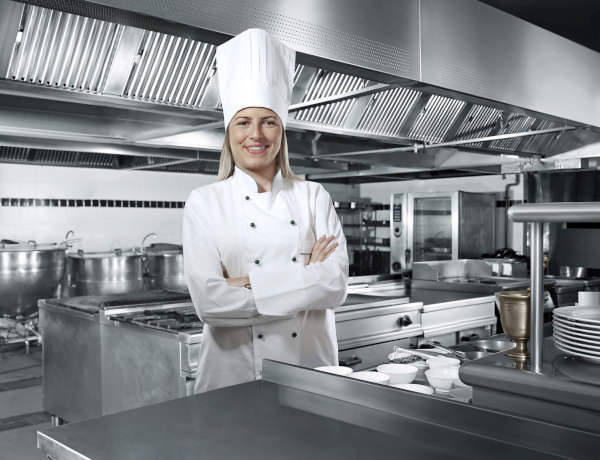Necessity of Commercial Kitchen Hood Maintenance and Repair

Your range hood, also known as a grease hood, along with the exhaust vent are among the most important pieces of equipment in your kitchen and boy do they work hard. Your hood’s ventilation is a key component of the overall ventilation system for your facility. Your Type 1 hood’s role in your vent hood system is to exhaust grease, oil, and smoke as well as heat, moisture and odors. Your Type 2 hood will only remove heat, moisture and odors. Therefore, removing cooking vapors and heat are necessary to maintain the balance of air in your commercial kitchen, as well as keep a pleasant environment for both your staff and customers.
A kitchen ventilation system also works independently with the buildings HVAC system to produce a properly balanced flow of air to the building. A very slight negative air pressure is preferred in a commercial kitchen in order to keep the heat and odors of a kitchen from migrating back into the dining area or other parts of the building.
We do recognize how easy it is to overlook this equipment from a maintenance perspective. When a range hood is not routinely cleaned and maintained, it can cause major problems and possibly even a fire. Here is a list of helpful signs that are telling you it is time to have your commercial kitchen hood maintained.
- Opening the door to the facility is difficult
- You have a haze lingering in the kitchen or dining area
- Smoke hovers
- You find yourself constantly changing the temperature control settings
- Odors from outside, are present in the building
- Inconsistent heating or cooling throughout your facility
- An abundance of dust or dirt is visible
Type 1 hood filters should be cleaned on a regular basis, depending upon your operation, that may be daily. All surfaces of both types of hoods should be washed with soapy water at least weekly. A buildup of dirt and grease on fans puts stress on the motors. Old grease in the range hood may negatively impact the reverse draw of the exhaust fan allowing smoke, soot, steam and heat to not be pulled away from your building, increasing the risk of a fire hazard If you notice smoke is not clearing from your kitchen properly or the motors are becoming louder, contact a professional contractor to complete a thorough inspection and fix the problem. Repair costs tend to be lower when problems are caught early, so it is worth while keeping an eye on your systems performance.
Make routine cleaning of your range hood a regular part of kitchen duties and contract with commercial kitchen experts for routine maintenance and any needed repairs. If you need further advice on the maintenance of your hood an exhaust system feel free to call your nearest General Parts location which can be found here.


